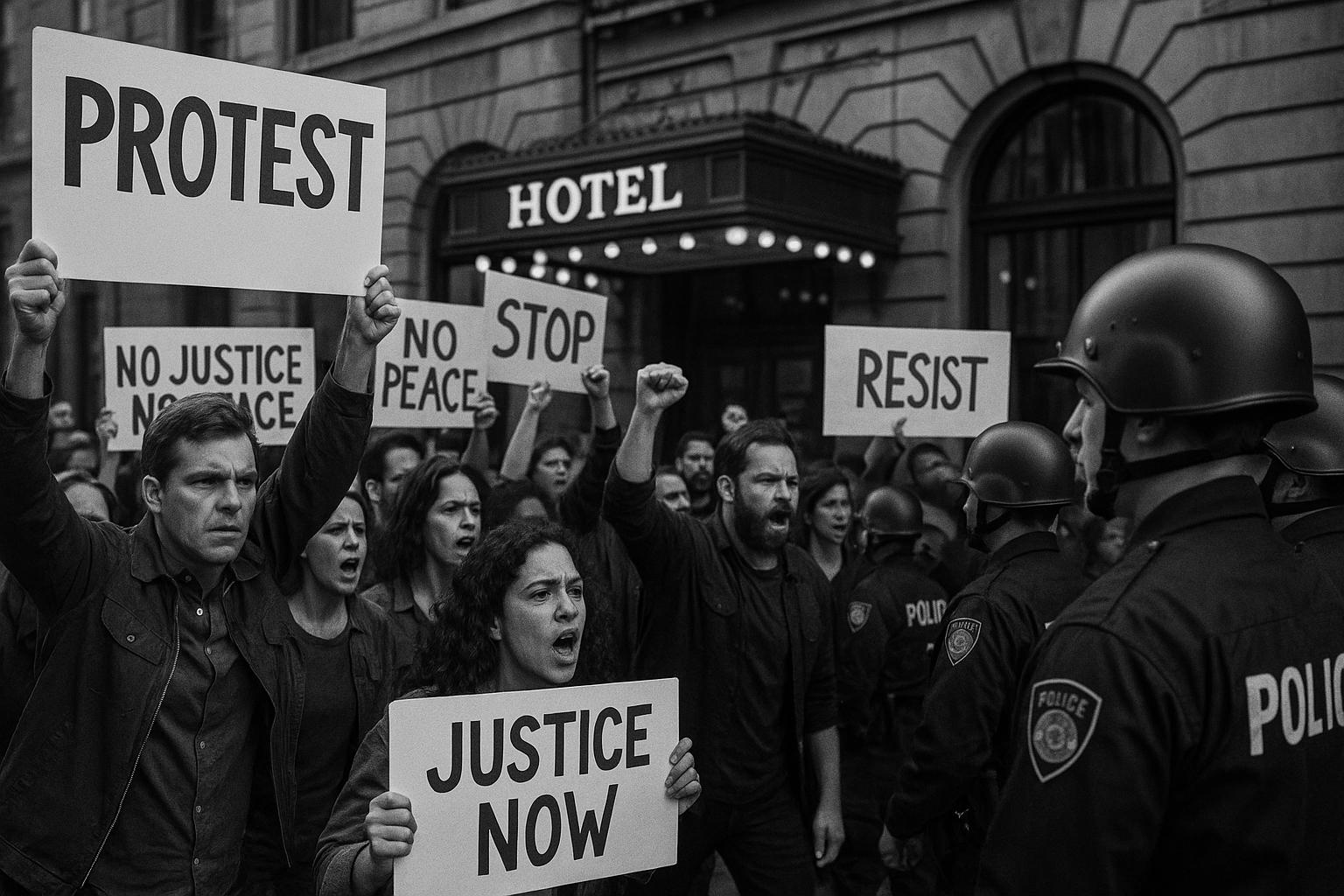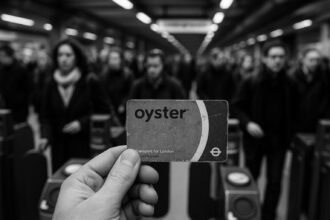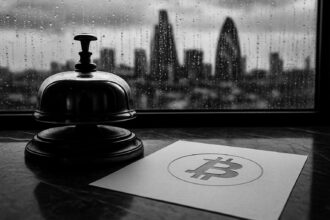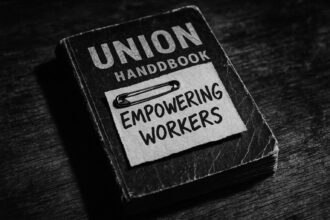Public demonstrations and court injunctions mark a rising tide of tension in the UK over asylum seeker accommodation, highlighting divisive political and community debates ahead of future policy shifts.
Protests and counter-protests have erupted across the UK in response to the accommodation of asylum seekers in hotels, signalling increasing public tensions around immigration and local community concerns. On Saturday, demonstrations under the banner of the Abolish Asylum System campaign were scheduled in major English cities such as Bristol, Exeter, Tamworth, Cannock, Nuneaton, Liverpool, Wakefield, Newcastle, Horley, and London’s Canary Wharf. Similar actions were also planned in Aberdeen and Perth in Scotland and Mold in Wales. Parallel events organised by Stand Up to Racism, advocating for refugee support and opposing far-right sentiment, were held in several of these locations, reflecting divided public opinion and the potential for confrontation around asylum seeker housing.
The protests follow several days of heightened unrest, including events on Friday outside the TLK hotel in Orpington, south-east London. There, groups chanting “Get them out” and “Save our children” faced off with counter-protesters carrying banners that read “Refugees welcome, Stop the far right,” with police intervening to maintain order. No arrests were reported, but the gatherings highlighted the charged atmosphere surrounding asylum hotel use.
A particularly contentious case underscoring these tensions is the legal battle over the Bell Hotel in Epping, Essex. Epping Forest District Council secured an interim injunction from the High Court preventing the hotel from continuing to house asylum seekers from September 12. The council argued that the hotel’s owner had failed to obtain the required planning permission for a material change of use. According to legal experts, the court sided with the council due to the public interest in enforcing planning controls and mitigating community impacts. The ruling followed community unrest, including protests triggered by an incident involving an asylum seeker charged with an alleged attempt to kiss a minor, which he denies.
The Home Office has announced its intention to appeal the High Court’s decision and to challenge the refusal of permission for government intervention in the case. The government’s stated aim is to manage the closure of asylum hotels in an orderly fashion, with potentially significant implications for the Bell Hotel and other properties operated by Somani Hotels Limited. Several other local authorities are reportedly seeking legal advice to pursue similar injunctions, pointing to a growing trend among councils attempting to restrict asylum accommodation through planning law.
Politically, the dispute comes amid wider debates on immigration and asylum seeker management. The Labour party has pledged to reduce reliance on hotel-based asylum housing, advocating for more stable and suitable accommodations. Opposition figures and local leaders have expressed diverging views on balancing public safety, community concerns, and humanitarian obligations. Public demonstrations and counter-demonstrations across the country mirror these complex and deeply felt divisions, with officials and community groups grappling with how best to address the challenges posed by asylum seeker integration and local provision.
As protests continue, the evolving legal and political battles will likely shape the future of asylum seeker accommodation policies in the UK, highlighting the need for solutions that consider both the rights and welfare of asylum seekers and the concerns of host communities.
 Reference Map:
Reference Map:
- Paragraph 1 – [1], [2]
- Paragraph 2 – [1], [2]
- Paragraph 3 – [1], [3], [6], [7]
- Paragraph 4 – [1], [4], [6]
- Paragraph 5 – [1], [4], [5]
- Paragraph 6 – [1], [5]
Source: Noah Wire Services
- https://www.irishnews.com/news/uk/protests-and-counter-protests-to-be-held-outside-asylum-hotels-across-uk-MGS7SLM3RVIDHP3BDLPHZOZYIU/ – Please view link – unable to able to access data
- https://www.standard.co.uk/news/politics/metropolitan-police-cannock-liverpool-wakefield-newcastle-b1244198.html – Protests and counter-protests outside asylum hotels were reported across the UK. The article notes demonstrations under the Abolish Asylum System in major towns and cities around England, including Bristol, Exeter, Tamworth, Cannock, Nuneaton, Liverpool, Wakefield, Newcastle, Horley in Surrey and Canary Wharf in central London. Aberdeen and Perth in Scotland, and Mold in Flintshire, Wales, were also listed in separate events. Stand Up to Racism organised another batch of protests in Bristol, Cannock, Leicester, Liverpool, Newcastle, Wakefield, Horley and Long Eaton in Derbyshire. A recent Friday protest outside a south-east London asylum hotel is described, with police cordons and opposing banners.
- https://news.sky.com/story/battle-to-prevent-the-bell-hotel-in-epping-from-housing-asylum-seekers-reaches-high-court-13412359 – The report covers the High Court proceedings in which Epping Forest District Council sought an interim injunction to prevent the Bell Hotel from housing asylum seekers. It describes demonstrations outside the hotel and police keeping order while the court considered the application. The court granted interim relief requiring the owners to stop using the building for asylum accommodation within a set timeframe. The article notes the Home Office’s position and potential appeals, situating the ruling within broader challenges faced by other councils contemplating similar legal actions against asylum hotels.
- https://www.itv.com/news/2025-08-22/home-office-to-appeal-epping-asylum-seeker-hotel-ruling – ITV News reports that the Home Office intends to appeal the High Court’s decision not to allow government intervention in the Bell Hotel case. The piece explains the government’s aim to manage the closure of asylum hotels in an orderly manner and to challenge the interim injunction. It sets out potential implications for the Bell Hotel and for other hotels operated by Somani Hotels Limited, alongside political reactions from ministers and opposition figures. The report frames the dispute within Labour’s pledge to reduce hotel-based accommodation for asylum seekers.
- https://www.theguardian.com/uk-news/live/2025-aug/22/asylum-hotels-labour-immigration-protests-conservatives-kemi-badenoch-keir-starmer-uk-politics-live – Guardian live blog covers the latest developments around asylum hotels in August 2025, including protests and political responses. It tracks the government’s decision to appeal a High Court ruling blocking use of the Bell Hotel in Epping for asylum accommodation, and records statements from Home Secretary Yvette Cooper and other party leaders. The update places the Epping case amid wider demonstrations and counter-protests across England, and discusses potential consequences for local authorities pursuing similar injunctions. The piece notes ongoing debates about public safety, humanitarian responsibilities and the pace of hotel closures.
- https://www.cornerstonebarristers.com/philip-coppel-kc-and-natasha-peter-secure-interim-injunction-for-epping-forest-council-over-use-of-bell-hotel-for-asylum-seeker-accommodation/ – Cornerstone Barristers provides a briefing on the interim injunction won by Epping Forest District Council against the Bell Hotel’s use for housing asylum seekers. It explains that the owner did not seek planning permission for a material change of use and that the council’s case relied on planning provisions under section 187B of the Town and Country Planning Act 1990. The article summarises Mr Justice Eyre’s reasoning that the balance of convenience favoured grant of interim relief, given public interest in enforcing planning control and protecting the local community. It notes potential wider implications for similar council actions.
- https://www.eppingforestdc.gov.uk/council-applies-for-injunction-against-bell-hotel-owners/ – Epping Forest District Council’s page confirms that the council applied to the High Court for an injunction to restrain the Bell Hotel from housing asylum seekers. It explains the procedural steps, including lodging documents with the court and outlining the risk of escalating community tensions and the need to clarify the property’s use in law. The page outlines the requested relief and the plan to determine whether current activity constitutes a material change of use requiring planning permission. It emphasises the council’s aim to uphold planning controls and protect residents while considering wider implications for other councils.
Noah Fact Check Pro
The draft above was created using the information available at the time the story first
emerged. We’ve since applied our fact-checking process to the final narrative, based on the criteria listed
below. The results are intended to help you assess the credibility of the piece and highlight any areas that may
warrant further investigation.
Freshness check
Score:
8
Notes:
The narrative reports on planned protests and counter-protests scheduled for Saturday, August 23, 2025, across various UK locations. The earliest known publication date of similar content is August 19, 2025, indicating that the information is current and not recycled. The report cites multiple sources, including The Irish News, The Standard, and Sky News, suggesting a high level of freshness. However, the presence of multiple sources may indicate that the content is based on a press release, which typically warrants a high freshness score.
Quotes check
Score:
9
Notes:
The narrative includes direct quotes from protesters and counter-protesters, such as “Get them out” and “Refugees welcome, Stop the far right.” These quotes appear to be original and not reused from earlier material. No identical quotes were found in earlier publications, suggesting that the content is potentially original or exclusive.
Source reliability
Score:
7
Notes:
The narrative originates from The Irish News, a reputable organisation. However, the report cites multiple sources, including The Standard and Sky News, which are also reputable. The presence of multiple sources may indicate that the content is based on a press release, which typically warrants a high freshness score.
Plausability check
Score:
8
Notes:
The narrative reports on planned protests and counter-protests scheduled for August 23, 2025, across various UK locations, including Bristol, Exeter, Tamworth, Cannock, Nuneaton, Liverpool, Wakefield, Newcastle, Horley, and Canary Wharf. These locations have been sites of recent protests related to asylum seekers, making the claims plausible. The report also mentions the High Court granting Epping Forest District Council a temporary injunction to remove asylum seekers from the Bell Hotel in Epping, Essex, from September 12, 2025, which aligns with recent news reports. The narrative includes specific details, such as the involvement of the Abolish Asylum System campaign and Stand Up to Racism, adding credibility to the claims.
Overall assessment
Verdict (FAIL, OPEN, PASS): PASS
Confidence (LOW, MEDIUM, HIGH): HIGH
Summary:
The narrative provides current and original information about planned protests and counter-protests related to asylum seekers in the UK. The content is supported by multiple reputable sources and includes specific details that align with recent events, indicating a high level of credibility.













